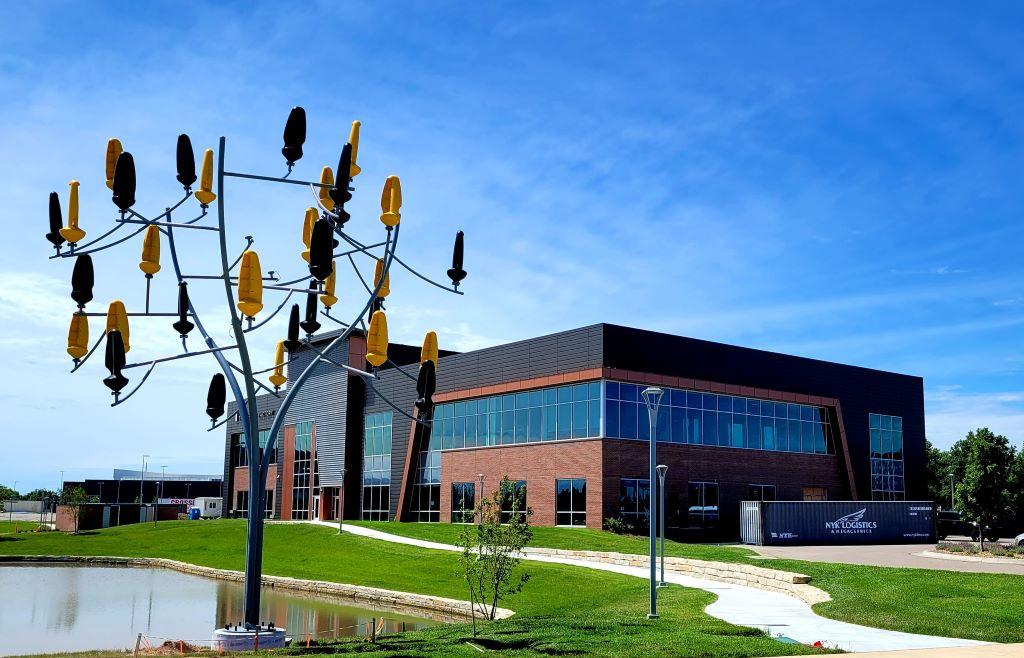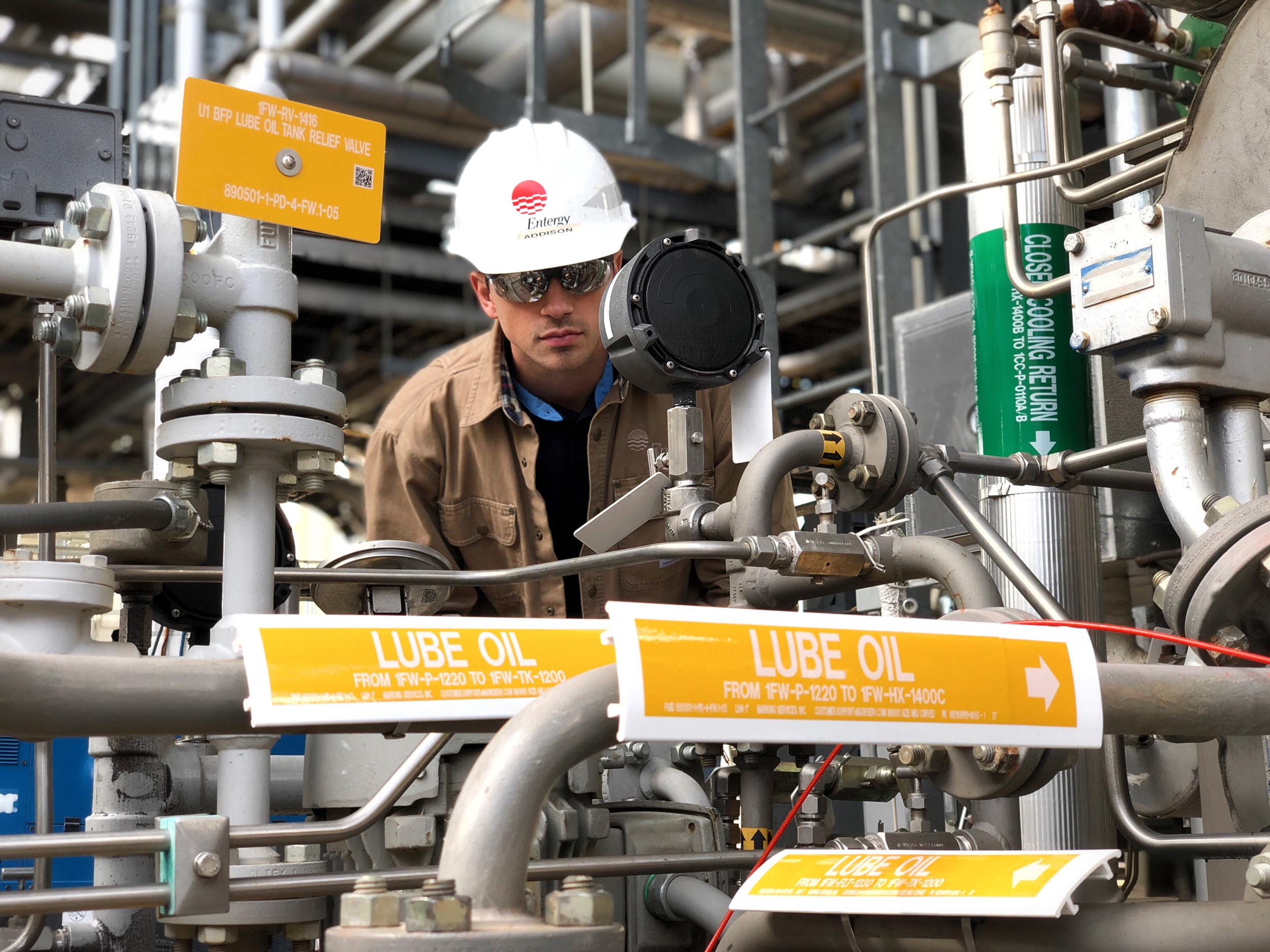
Getting into the logistics industry can be a bit daunting. You may have to take some extra courses or complete some internships before you can start your new job. Good news is that you can find entry-level jobs in logistics to help get your foot in this field.
These positions usually require an associate's or bachelor's degree. This degree will allow you to understand how the supply chain works. You can also qualify for professional certifications by having a degree. Online courses can also be offered in specialized fields. In some cases, you can get reimbursed for the cost of your graduate program.
A variety of industries can offer entry level logistics jobs. One example is in the aerospace, oil and natural gas or freight transportation industry. There are also opportunities to work internationally, in a variety of industries.

Logistik professionals can use both sides to solve problems. They use their skills to create sustainable supply chains. They can also influence the decision-making process at both the operational and executive levels. Although the job is challenging, it can also be rewarding. In a booming economy, the logistics industry is experiencing rapid growth.
Leadership qualities and strong management skills are required for logistics workers. They should also be able and able to communicate effectively. They must also be able to use specialized software systems. They may also be responsible to find storage space near shipping ports. They may also be working to ensure that goods are properly cleared at customs.
Logistics is continuously evolving. The industry is constantly changing with new technologies and business models. These changes are important to understand. A bachelor's degree can help you become a skilled logistics professional. It will allow you to establish a professional networking. Participation in industry conferences and seminars is also possible. A recognized institution may also grant a degree.
There are also a variety of administrative jobs, which require strong communication and analytical skills. These roles can be found within the company, while others could involve customers, suppliers or other business functions.

Consider joining an industry association if you're looking to begin a career as a logistics professional. You can find information about professional certifications, industry news, and job board listings at these organizations. They may also help you to find a mentor. Many of these organizations offer graduate fellowships for students.
In addition, many countries offer vocational certifications, which require no prior logistics experience. These certifications are especially valued by enterprises with in-house transportation fleets. Enterprises with in-house transport fleets will also appreciate the Certificate of Professional Competence for Road Transport Operations.
Entry level logistics jobs can be found throughout the nation. You can also find a wide range of online resources to help you search for work. You can also draw on your network of friends and family for help.
FAQ
Why is logistics important for manufacturing?
Logistics are an essential part of any business. They can help you achieve great success by helping you manage product flow from raw material to finished goods.
Logistics play an important role in reducing costs as well as increasing efficiency.
What are the requirements to start a logistics business?
It takes a lot of skills and knowledge to run a successful logistics business. Effective communication skills are necessary to work with suppliers and clients. You will need to know how to interpret data and draw conclusions. You must be able manage stress and pressure under pressure. To increase efficiency and creativity, you need to be creative. Strong leadership qualities are essential to motivate your team and help them achieve their organizational goals.
To meet tight deadlines, you must also be efficient and organized.
Is automation important in manufacturing?
Automation is essential for both manufacturers and service providers. It allows them provide faster and more efficient services. It also helps to reduce costs and improve productivity.
Is there anything we should know about Manufacturing Processes prior to learning about Logistics.
No. It doesn't matter if you don't know anything about manufacturing before you learn about logistics. Understanding the manufacturing process will allow you to better understand logistics.
How is a production manager different from a producer planner?
The major difference between a Production Planner and a Project Manager is that a Project Manager is often the person responsible for organizing and planning the entire project. While a Production Planner is involved mainly in the planning stage,
What is production planning?
Production Planning involves developing a plan for all aspects of the production, including scheduling, budgeting, casting, crew, location, equipment, props, etc. This document will ensure everything is in order and ready to go when you need it. It should also provide information about how best to produce the best results while on set. This information includes locations, crew details and equipment requirements.
The first step is to decide what you want. You may have decided where to shoot or even specific locations you want to use. Once you have identified your locations and scenes, you can start working out which elements you require for each scene. You might decide you need a car, but not sure what make or model. In this case, you could start looking up cars online to find out what models are available and then narrow your choices by choosing between different makes and models.
After you've found the perfect car, it's time to start thinking about adding extras. Are you looking for people to sit in the front seats? Or perhaps you need someone walking around the back of the car? You may want to change the interior's color from black or white. These questions will help determine the look and feel you want for your car. Another thing you can do is think about what type of shots are desired. Are you going to be shooting close-ups? Or wide angles? Maybe you want to show your engine or the steering wheel. These factors will help you determine which car style you want to film.
Once you've determined the above, it is time to start creating a calendar. You will know when you should start and when you should finish shooting. You will need to know when you have to be there, what time you have to leave and when your return home. It will help everyone know exactly what they have to do and when. It is possible to make arrangements in advance for additional staff if you are looking to hire. You should not hire anyone who doesn't show up because of your inaction.
It is important to calculate the amount of filming days when you are creating your schedule. Some projects can be completed in a matter of days or weeks. Others may take several days. When creating your schedule, be aware of whether you need more shots per day. Multiple shots at the same location can increase costs and make it more difficult to complete. You can't be certain if you will need multiple takes so it is better not to shoot too many.
Budget setting is another important aspect in production planning. Setting a realistic budget is essential as it will allow you to work within your means. You can always lower the budget if you encounter unexpected problems. It is important to not overestimate how much you will spend. You will end up spending less money if you underestimate the cost of something.
Production planning is a detailed process. But, once you understand the workings of everything, it becomes easier for future projects to be planned.
Statistics
- [54][55] These are the top 50 countries by the total value of manufacturing output in US dollars for its noted year according to World Bank.[56] (en.wikipedia.org)
- In 2021, an estimated 12.1 million Americans work in the manufacturing sector.6 (investopedia.com)
- Job #1 is delivering the ordered product according to specifications: color, size, brand, and quantity. (netsuite.com)
- In the United States, for example, manufacturing makes up 15% of the economic output. (twi-global.com)
- According to the United Nations Industrial Development Organization (UNIDO), China is the top manufacturer worldwide by 2019 output, producing 28.7% of the total global manufacturing output, followed by the United States, Japan, Germany, and India.[52][53] (en.wikipedia.org)
External Links
How To
How to use Lean Manufacturing in the production of goods
Lean manufacturing is a management style that aims to increase efficiency and reduce waste through continuous improvement. It was developed by Taiichi Okono in Japan, during the 1970s & 1980s. TPS founder Kanji Takoda awarded him the Toyota Production System Award (TPS). Michael L. Watkins published the "The Machine That Changed the World", the first book about lean manufacturing. It was published in 1990.
Lean manufacturing is often described as a set if principles that help improve the quality and speed of products and services. It is about eliminating defects and waste from all stages of the value stream. Lean manufacturing is also known as just in time (JIT), zero defect total productive maintenance(TPM), and five-star (S). Lean manufacturing seeks to eliminate non-value added activities, such as inspection, work, waiting, and rework.
Lean manufacturing improves product quality and costs. It also helps companies reach their goals quicker and decreases employee turnover. Lean manufacturing can be used to manage all aspects of the value chain. Customers, suppliers, distributors, retailers and employees are all included. Many industries worldwide use lean manufacturing. Toyota's philosophy, for example, is what has enabled it to be successful in electronics, automobiles, medical devices, healthcare and chemical engineering as well as paper and food.
Five fundamental principles underlie lean manufacturing.
-
Define Value- Identify the added value your company brings to society. What makes you stand out from your competitors?
-
Reduce Waste - Remove any activity which doesn't add value to your supply chain.
-
Create Flow – Ensure that work flows smoothly throughout the process.
-
Standardize & Simplify - Make processes as consistent and repeatable as possible.
-
Develop Relationships: Establish personal relationships both with internal and external stakeholders.
Lean manufacturing is not a new concept, but it has been gaining popularity over the last few years due to a renewed interest in the economy following the global financial crisis of 2008. To increase their competitiveness, many businesses have turned to lean manufacturing. Economists think that lean manufacturing is a crucial factor in economic recovery.
Lean manufacturing has many benefits in the automotive sector. These include higher customer satisfaction levels, reduced inventory levels as well as lower operating costs.
It can be applied to any aspect of an organisation. This is because it ensures efficiency and effectiveness in all stages of the value chain.
There are three main types of lean manufacturing:
-
Just-in-Time Manufacturing: Also known as "pull systems", this type of lean manufacturing uses just-in-time manufacturing (JIT). JIT stands for a system where components are assembled on the spot rather than being made in advance. This approach reduces lead time, increases availability and reduces inventory.
-
Zero Defects Manufacturing (ZDM),: ZDM is a system that ensures no defective units are left the manufacturing facility. It is better to repair a part than have it removed from the production line if it needs to be fixed. This also applies to finished products that need minor repairs before being shipped.
-
Continuous Improvement (CI): CI aims to improve the efficiency of operations by continuously identifying problems and making changes in order to eliminate or minimize waste. Continuous improvement refers to continuous improvement of processes as well people and tools.